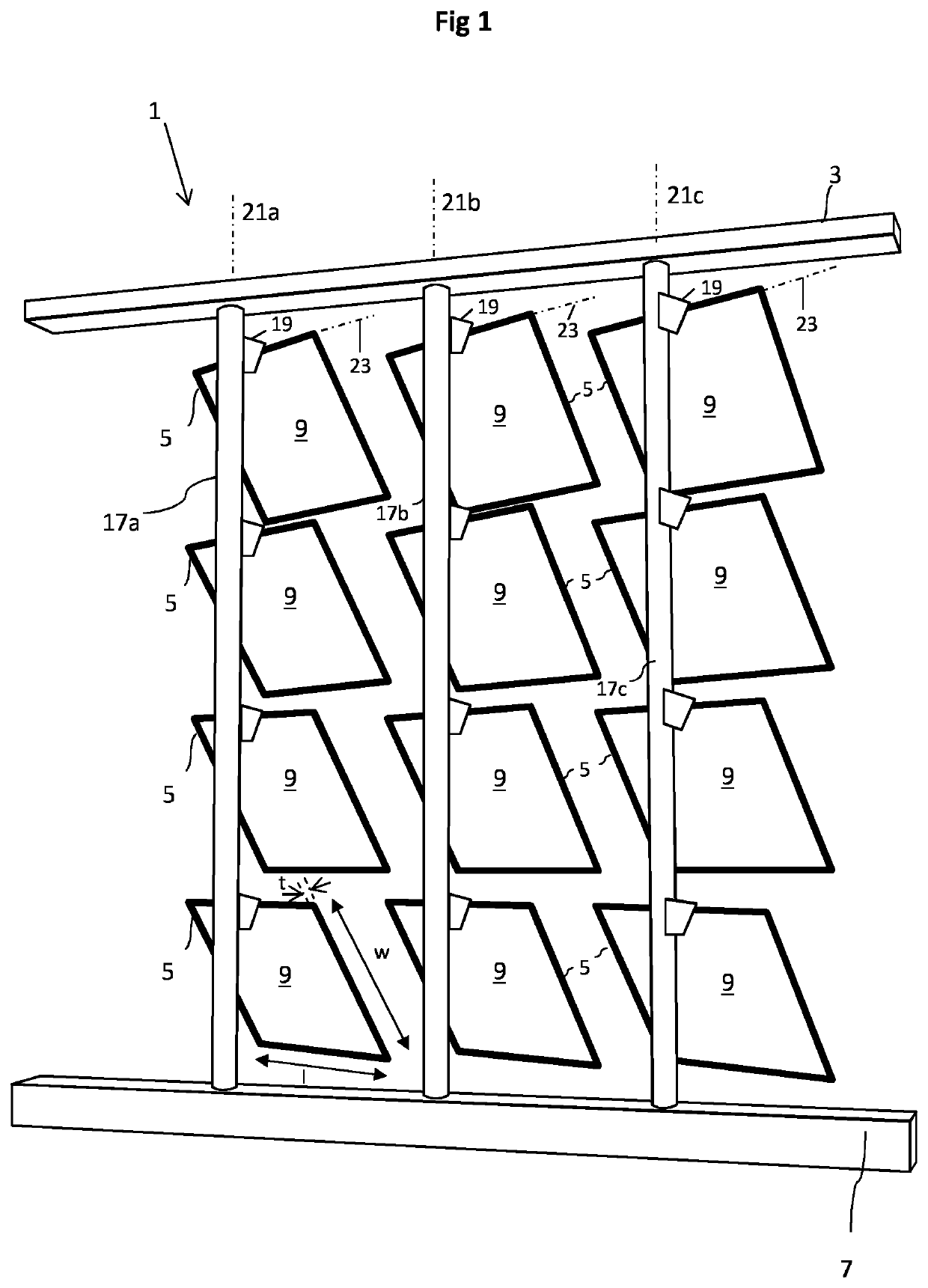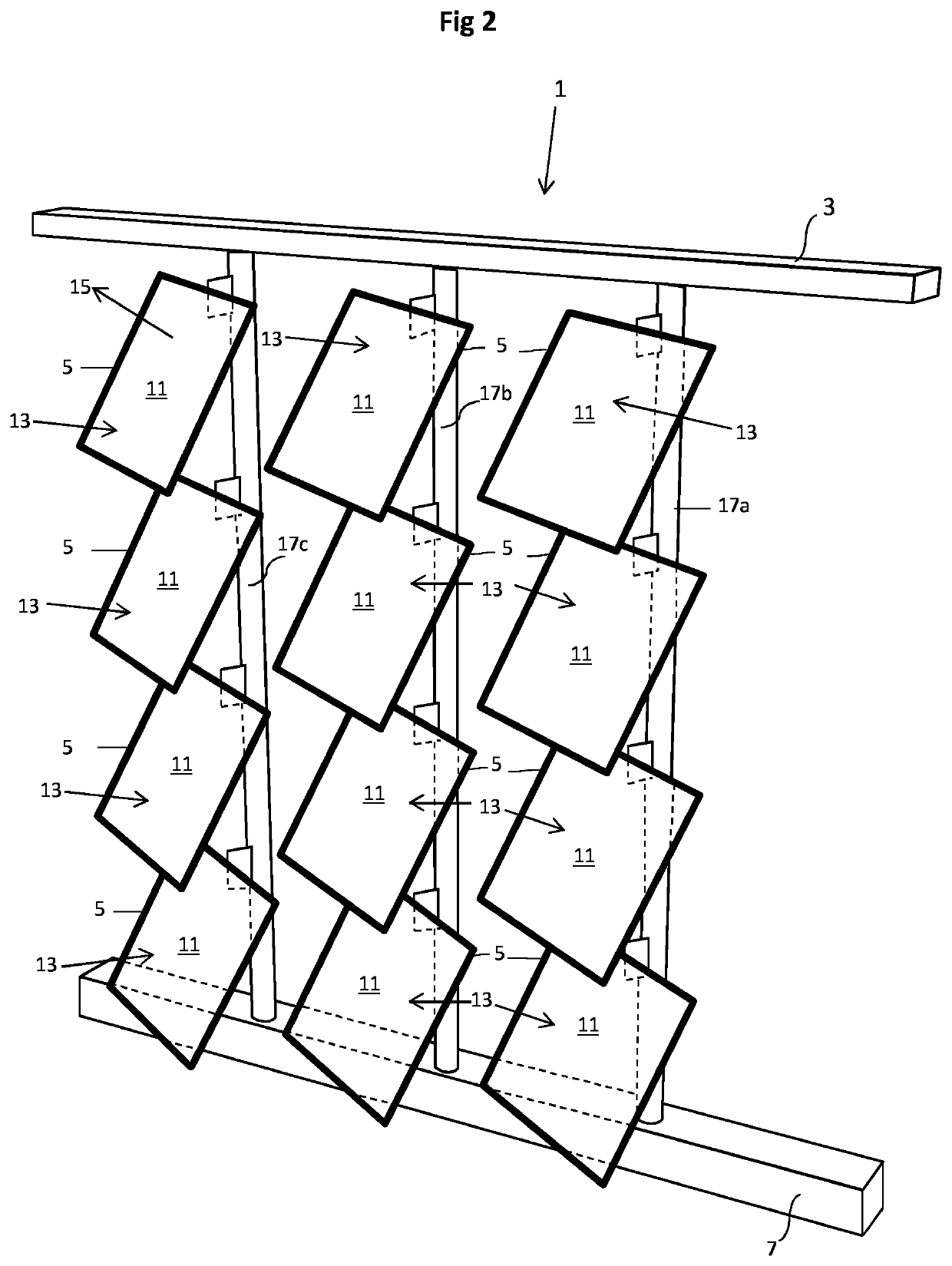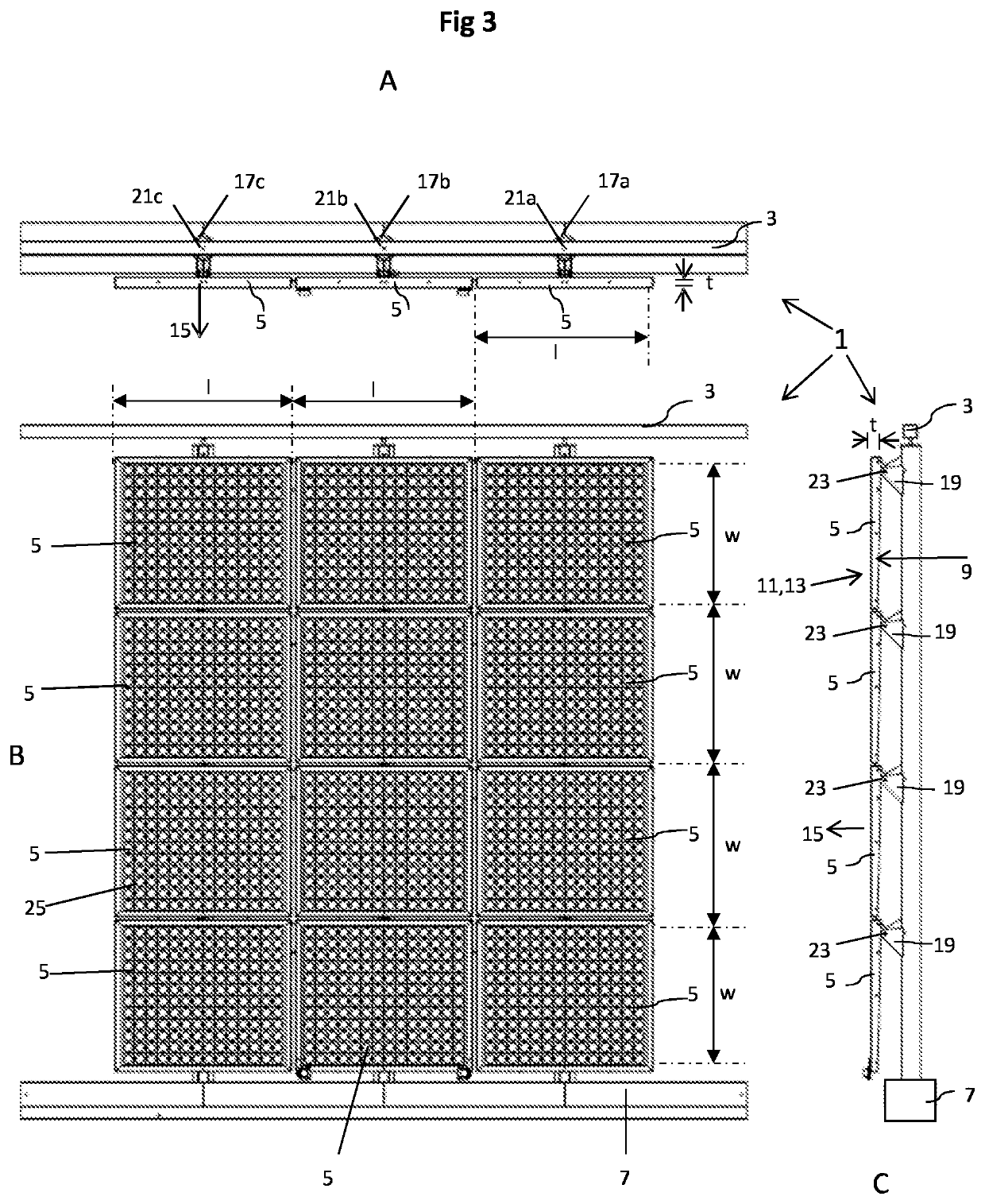Solar shading module, glazed structure, building, and method of operating a solar shading module
a solar shading and module technology, applied in the direction of photovoltaic supports, light and heating apparatus, sustainable buildings, etc., can solve the problems of insufficient improvement, low unobstructed view factor, and blinds obstructing the view of an observer in many directions, so as to improve the effect of synchronization, efficient use, and convenient synchronization of motion
- Summary
- Abstract
- Description
- Claims
- Application Information
AI Technical Summary
Benefits of technology
Problems solved by technology
Method used
Image
Examples
Embodiment Construction
[0060]FIGS. 1, 2 and 3A to 3C depict schematically a solar shading module 1 for shading direct sunlight, said module 1 comprising a frame 3, and array of 3 by 4 shading panels 5, and a solar tracking system 7 configured to move the shading panels 5 in order to follow the sun.
[0061]FIG. 1 depicts the module 1 seen from a shaded side of the module 1, while FIG. 2 depicts the module 1 seen from a sun side of the module 1. FIG. 3A depicts a top view, FIG. 3B a front view, and FIG. 3C a side view. In FIGS. 3A, 3B and 3C the shading panels have all been positioned in a single plane in front of the frame 3. In FIGS. 1 and 2, the shading panels have all been rotated similarly.
[0062]The array of 3 by 4 shading panels is a mere example. The smallest array falling within the terms of the invention is an array of 2 by 2 shading panels, but the array may also be much larger. For simplicity reasons, the example is chosen to be relatively small. Hence, every practical m×n array can be envisaged wi...
PUM
 Login to View More
Login to View More Abstract
Description
Claims
Application Information
 Login to View More
Login to View More - R&D
- Intellectual Property
- Life Sciences
- Materials
- Tech Scout
- Unparalleled Data Quality
- Higher Quality Content
- 60% Fewer Hallucinations
Browse by: Latest US Patents, China's latest patents, Technical Efficacy Thesaurus, Application Domain, Technology Topic, Popular Technical Reports.
© 2025 PatSnap. All rights reserved.Legal|Privacy policy|Modern Slavery Act Transparency Statement|Sitemap|About US| Contact US: help@patsnap.com



